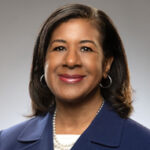North Carolina’s banking industry contains a wealth of knowledge, experience and insight. Whether you belong to a larger institution or one of our state’s many community banks, everyone can benefit from the chance to discuss issues with a group of like-minded peers. By joining a peer group, you gain access to a professional network exchange ideas and insights in a confidential setting. With the help of our member engagement team, these peer groups will also allow bank members to further engage with and gain a better understanding of the North Carolina Bankers Association.
All peer groups will meet on a quarterly basis. Join these facilitated platforms to share information, exchange ideas and discuss important issues with peers!












